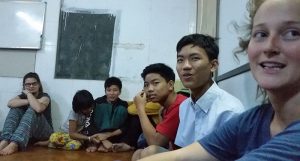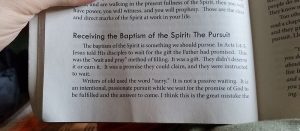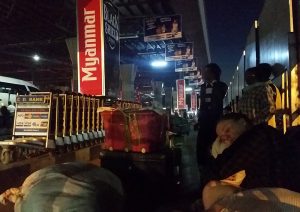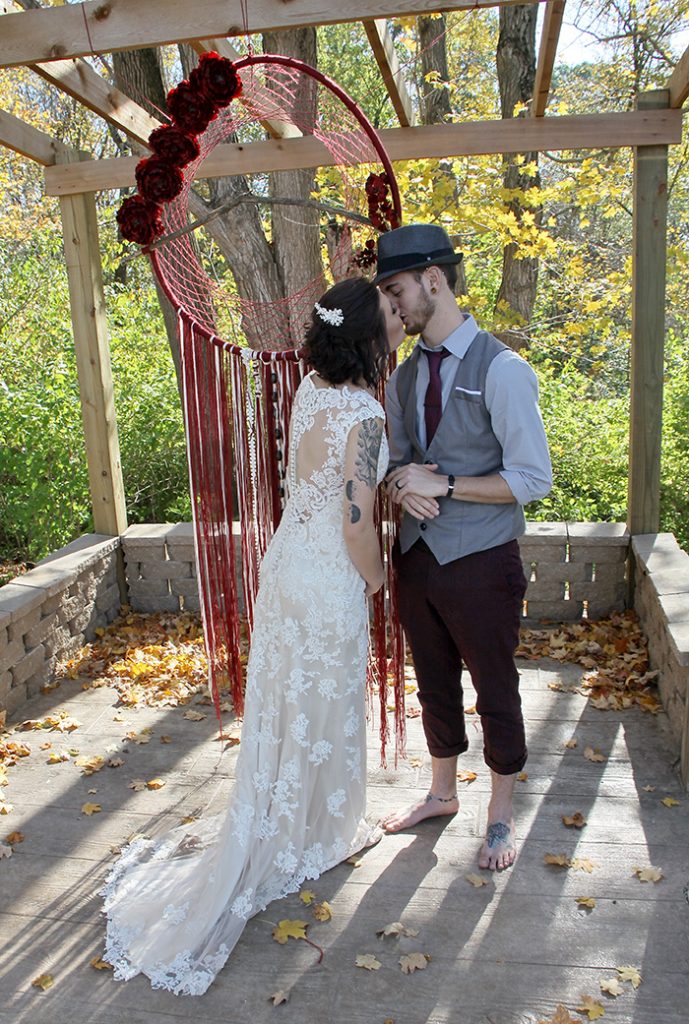Sibling harmony
Two sisters surrender possessions and embark on missions of ministry
By Laurie B. Davis
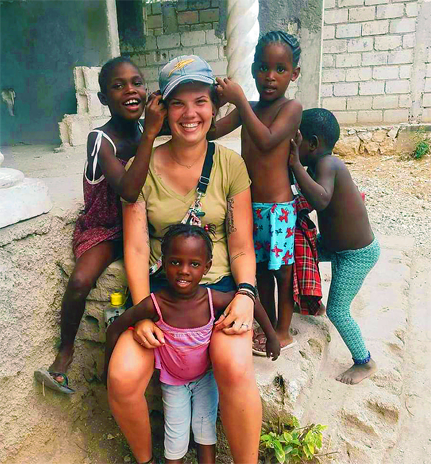
She has always wanted to lead a life of service, but as her University of Toledo graduation approached in 2015, she felt anxious about life after college. She was not 100 percent convinced she had chosen the right life path, and she struggled with her decisions, she says.
“My heart had always desired to serve people,” says Borish. “I grew up participating in mission trips, both domestically and internationally with my mom, brother and my sister. I grew up volunteering at nursing homes, hospitals, soup kitchens and homeless shelters,” she says. I loved to serve and help people.”
After earning her bachelor’s degree, she applied to graduate school at UT and to the Peace Corps. It wasn’t until she found Adventures in Missions that Borish found peace in her heart. The nonprofit missionary organization in Georgia that operates the World Race, provides an 11-month program for participants between the ages of 21 and 35. They travel to 11 countries where they evangelize about a life of serving Jesus, teach the Gospel through partnerships with established ministries, and participate in community service projects.
Borish’s younger sister Bethany Grayczyk (Eng ’17) is currently in Haiti and will end her World Race journey in the Dominican Republic in June. By the end of her mission trip, Grayczyk will have visited four continents and a dozen countries —Albania, Romania, Bulgaria, Macedonia, Thailand, Philippines, Myanmar, South Africa, Lesotho, Zimbabwe, Haiti and the Dominican Republic.Prior to their departure, racers sell all of their material possessions and fundraise for their trip through myriad means: garage sales, auctions, speaking and charitable events, spaghetti dinners, outreach to businesses and sponsors, and donations from family and friends. The money they raise pays for airfare, buses used in country for travel, administrative fees, medical insurance, and food.
They carry with them only one 70-pound backpack, a 35-pound day pack with a tent, sleeping bag and hammock, the items that serve as their living quarters for one year. Generally, they carry only one set of clothing and live on less than $5 a day for a year. There are no 21st-century amenities, including running water for bathing, which is done with a bucket and a cup.
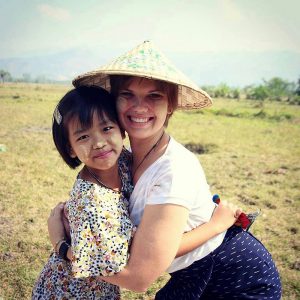
Had Borish not taken the circuitous route she traveled as a missionary, she might not have found herself back in Ohio ready to utilize her UT Education degree as an intervention specialist. She certainly would not be married to the man she met on her journey, a man who shares her faith, values and passion for service to others.
“One of the men in my squad fell in love with me at first sight — so he says. But he continued the entire time, very subtly, working to win my heart. Eventually, I fell in love with him. Once we returned home, we married that fall.”
A World in Need
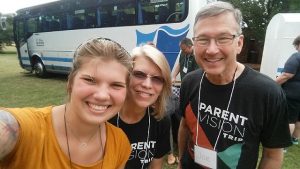
Departing from the coast of Turkey, hundreds of Syrian families had piled on plastic rafts to sail across the Aegean Sea in hopes of reaching the Island of Lesvos, says Borish. She and her World Race squad of young missionaries were stationed to operate an emergency relief camp on Lesvos. They were joined by volunteers from EuroRelief, the United Nations and Samaritan’s Purse.
“Once we arrived, we immediately began working 14- to 18-hour shifts. We were the first responders on land, pulling these hurting people out of the water and onto shore. We were getting them emergency medical care; helping them find their missing family; sorting through donations; and helping them change out of their cold, drenched clothing,” says Borish. They cooked, and offered a meal and hot tea, and helped load people onto buses that would transport them to a larger camp in Thessaloniki, Greece.The danger of crossing the sea rose as more people boarded the rafts that were over capacity, says Borish. If a raft should capsize and force people into the water, they would be faced with swimming to shore. “This brings tears to my eyes even recalling these memories,” says the young missionary. “It was absolutely heartbreaking every time we would hear news of a raft collapsing and losing 100-plus people each time.”
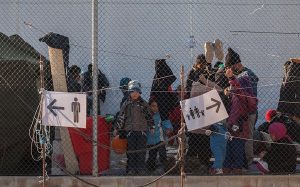
It’s a family affair
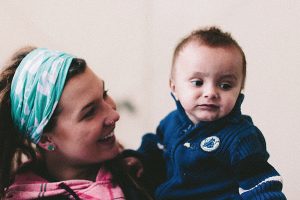
Like her sister, Grayczyk has done some relief work. She helped prepare bags of food and clothing for Burmese refugees seeking safety from flooding. In South Africa, she served the homeless and children living in the slums of Port Elizabeth, and in Pretoria, she served alongside her parents, Shari and Joe Grayczyk, who were able to visit their daughter during a Parent Vision Trip in April. They worked together to teach life skills to poverty-stricken residents who also are jobless. “After the classes have been completed, the people receive a certificate of completion that is recognized by the government,” says Grayczyk. Many of the graduates become job candidates for retail stores. “We were able to give input and guidance to the people about emotional intelligence and real-life workplace scenarios,” she says.
Grayczyk says one of the most rewarding experiences she has had so far was on Christmas Day 2017 in Chum Phae, Thailand. She and her team members went there to evangelize and share their Christianity through some religious performances. “Christmas Day we were invited into a government-run Buddhist school, where the only Christian there was our contact. During our time there we did four performances, which included a dance, a skit, a mini message about the Gospel and the meaning behind Christmas. Then we did break-out sessions with the youth,” she says. “During my last group of sessions, I had 15 students, and after sharing my testimony about how I came to be a Christ follower, all 15 wanted to accept Jesus Christ as their Lord and Savior.” Through a translator, Grayczyk says, she was able to lead these students in prayer to accepting Jesus into their lives.While some people in the countries Grayczyk and her fellow racers have visited already practice Christianity, many in Asia are Buddhists and Muslims. She says many people they met in Europe are atheistic. “People, for the most part, have been extremely open to learning about my faith. I have learned over the course of these past few months that the more direct I am with people, the more willing they are to be direct, and thus honest with me about where they stand in their beliefs and why.”
Before the homecoming
Some experiences on the whirlwind trip also have touched on her life back in Ohio. In Romania, Grayczyk got to play soccer, a sport she loves. She plays, coaches and referees the game at home in the states. “One of the teams on my squad went out and evangelized to the local youth and then set up a soccer outreach day at one of the public fields. Through that, I was invited to join them for the day and play and get to know the youth—and I had an absolute blast.”
Grayczyk’s UT education also has carried over to her mission abroad. When some of the hosts learned that she has an engineering degree, they asked her advice about side projects they were working on. “I was able to give my input and unofficially guide them,” she says. “Additionally, and used more readily, I was able to use some of the education I received through my minor—entrepreneurship—and help some people who were trying to start their own businesses in various countries. I even was able to help a person start writing a business plan while in Europe.”With only one month ahead to complete in the Dominican Republic, Grayczyk says she knows exactly what she’ll take away from her experiences across the globe. “First and foremost is the knowledge that missions is a lifestyle. People do not have to go overseas and ‘volunteer’ for a week, or a month, or any period of time—there is a mission field right at home, wherever home may be. Secondly, I know I will take away from this experience the knowledge and understanding that God is living and active, and that He wants to do the extraordinary in and around our lives,” says Grayczyk. “We just have to be open, willing, and listening in order to allow God to have His way into our lives.”
Borish suggests that taking the long way home after college and turning her UT degree into a fulfilling role in her community was God’s work. “Yay, I am using my college degree; God has a funny sense of humor. We are still missionaries, we are just serving in a different mission’s field.”


